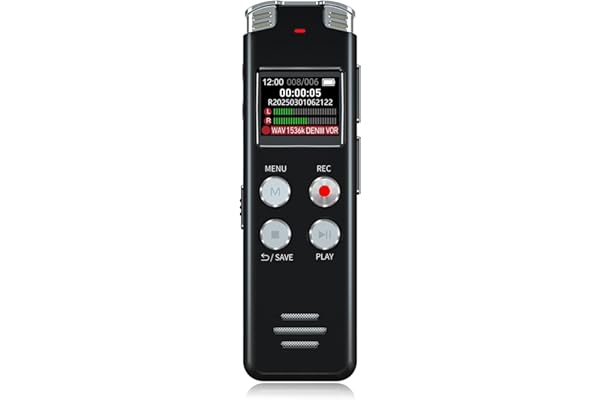How Often Do Car Accident Cases Go to Court? A Lawyer’s Perspective
When you’ve been in a car accident, the path forward seems shrouded in mystery and legal jargon. You’re dealing with injuries, a damaged vehicle, and a seemingly endless stream of calls from insurance adjusters. The thought of “going to court” can be terrifying, conjuring images of hostile cross-examinations and a jury deciding your fate. This fear often leads people to accept lowball settlement offers just to avoid the perceived ordeal of a lawsuit. But here’s the secret that every experienced attorney knows: the legal system is overwhelmingly designed to avoid trials, not to encourage them. So, how often do these cases actually see the inside of a courtroom? The answer is far less than you think.
The Short Answer: Almost Never.
The overwhelming majority of car accident cases are settled out of court. While statistics can vary slightly by jurisdiction, reputable sources like the U.S. Department of Justice have consistently shown that around 95-96% of personal injury cases are resolved before ever reaching a trial.
Even for the small fraction of cases where a formal lawsuit is filed, most will still settle at some point during the litigation process, long before a jury is ever selected. A true trial is the last resort, the final step in a long process designed to find a resolution without one.
Why Settlement is King: The Three Driving Forces
If trials are so rare, what is happening with the other 95% of cases? They are being settled through negotiation. This isn’t by accident. The entire legal and insurance system is built with powerful incentives to encourage out-of-court settlements. The three main forces are Time, Cost, and Risk.
1. The Crushing Cost of Litigation
A trial is phenomenally expensive for both sides. Costs include:
- Expert Witness Fees: Doctors, accident reconstructionists, and economic experts can charge thousands or even tens of thousands of dollars to prepare reports and testify.
- Deposition Costs: Paying for court reporters, videographers, and transcription services for every witness interview adds up quickly.
- Court Filing Fees: Simply filing the paperwork to initiate and maintain a lawsuit costs money.
- Attorney Hours: While most personal injury attorneys work on contingency (they only get paid if you win), the sheer number of hours required for a trial is a massive factor.
For an insurance company, settling a claim for $50,000 is often cheaper than spending $30,000 to win a case at trial, even if they think they have a strong defense.
2. The Glacial Pace of the Justice System
A negotiated settlement can be reached in a matter of months. In stark contrast, filing a lawsuit and taking it to trial can be a multi-year odyssey. The court system is backlogged, and the pre-trial process of “discovery” (the formal exchange of evidence) can take a year or more on its own. Most injured victims cannot afford to wait years for financial compensation to pay for their medical bills and lost wages.
3. The Unpredictable Nature of a Jury
A trial is a gamble. No matter how strong your case is, you are ultimately handing the decision over to six or twelve strangers who come with their own biases and interpretations of the facts. An insurance company might believe a claim is only worth $20,000, but a sympathetic jury could award $200,000. Conversely, a victim with a legitimate injury might get an unsympathetic jury and walk away with nothing. A settlement is a guaranteed outcome. It eliminates the risk of a disastrous result for both the plaintiff and the defendant.
The Pre-Litigation Journey: Where Most Cases are Resolved
The vast majority of an attorney’s work on a car accident case happens in the “pre-litigation” phase. This is the negotiation that occurs before any lawsuit is filed.
The process typically involves your attorney gathering all of your medical records and bills, documenting your lost wages, and compiling evidence about the accident. They then send a formal “demand letter” to the insurance company, laying out the facts and demanding a specific amount of compensation. This kicks off a period of negotiation with the insurance adjuster. During this time, the pressures of daily life continue to mount for the victim. Dealing with the immediate aftermath, like figuring out how to get a rental car after an accident, adds to the stress and can increase the desire to settle quickly.
For very minor accidents with no injuries, some people may even choose to bypass this formal process entirely. Learning how to settle a car accident privately can be an option, but it comes with its own risks and is generally not recommended if there are any injuries involved.
The Tipping Point: What Pushes a Case to Court?
So, what about that small percentage of cases that don’t settle? Why do they end up in litigation? It’s rarely one single reason, but usually a combination of factors:
- A Major Dispute Over Liability: This is the most common reason. The other driver’s insurance company refuses to accept that their client was at fault. These disputes can become incredibly complex, especially when family members are involved. Questions like “am I liable if my spouse causes a car accident?” introduce layers of complication that can make a negotiated settlement impossible.
- A Lowball Offer on a Serious Injury: If the victim has suffered a life-altering injury and the insurance company makes a settlement offer that is insultingly low, there may be no choice but to file a lawsuit to show them you are serious.
- A Question of Principle: Sometimes, an insurance company will fight a claim, even a small one, if they suspect fraud or want to send a message to the local legal community that they won’t be an easy target.
- Refusal to Disclose Policy Limits: If an insurer refuses to reveal how much coverage their client has, an attorney may need to file a lawsuit to compel them to do so through the discovery process.
Tools to Protect Your Claim from Day One
While your case is unlikely to go to trial, preparing as if it will is the best way to secure a fair settlement. Strong evidence is your greatest leverage.

4K Dual Dash Cam (Front and Rear)
Irrefutable video evidence is the single best tool for ending liability disputes before they start. This is a must-have for any driver.
Check Price on Amazon
Fireproof & Waterproof Document Bag
Keep your police report, medical bills, and correspondence with the insurer safe and organized. Meticulous records are crucial for your claim.
Check Price on Amazon
Digital Voice Activated Recorder
Perfect for dictating notes about your injuries, pain levels, and conversations immediately after they happen so you don’t forget details. (Note: Check state laws regarding recording conversations.)
Check Price on AmazonFrequently Asked Questions (FAQ)
Does hiring a lawyer mean my case is going to court?
No, quite the opposite. Hiring an experienced personal injury attorney signals to the insurance company that you are serious and understand the value of your claim. This often leads to more reasonable settlement offers *precisely because* the insurer wants to avoid the cost and risk of going to court against a competent lawyer.
What does it mean to “file a lawsuit”? Is that the same as a trial?
Filing a lawsuit is the official start of the litigation process, but it is not the same as a trial. It’s the step that allows your attorney to begin the “discovery” phase—formally requesting documents, taking depositions, etc. Most cases that are filed still settle during this discovery phase, long before a trial date is ever reached.
How long do I have to decide whether to go to court?
Every state has a law called the “statute of limitations,” which sets a firm deadline for how long you have to file a lawsuit after an accident. This can be anywhere from one to several years, depending on your state. If you miss this deadline, you lose your right to ever pursue the case in court.
Conclusion: The Power of a Credible Threat
So, while your car accident case is highly unlikely to end up in a dramatic courtroom trial, the entire settlement process happens in the shadow of the courthouse. A fair settlement is only possible because the insurance company knows that if they are unreasonable, you have the right to take your case before a jury. The credible *threat* of a trial is the leverage that forces negotiation and resolution. Understanding this dynamic is the key to demystifying the personal injury process and appreciating that the most important legal work often happens far away from a judge and jury.
Disclaimer: This article provides general information for educational purposes from a legal perspective. It does not constitute legal advice. The laws and procedures regarding personal injury claims vary significantly by state. For legal advice regarding your specific circumstances, you must consult with a licensed attorney in your jurisdiction.
